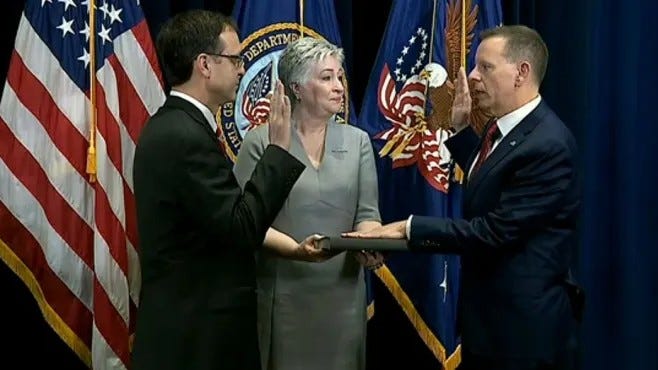
Many veterans and their caregivers do not know how to apply for the Department of Veterans Affairs benefits they have earned and deserve because of their military service.
That is according to former Department of Veterans Affairs Undersecretary for Benefits Dr. Paul Lawrence, whose book Veterans Benefits for You can help veterans and their caregivers better access their benefits and navigate the often complex VA system.
Lawrence said his book grew out of a series of virtual town halls he held during the COVID-19 pandemic between April and December of 2020. During the town halls, he answered thousands of benefits questions that usually revolved around the three most popular veterans benefits are: disability compensation, home loan guaranty and education/G.I. Bill.
“These are benefits veterans earn through service,” he said. “They are really supposed to help you. It is part of the package when you enlist and join.”
Lawrence said that while veterans should peruse VA’s website to learn more about the benefits they have earned, that should be seen as the first step in the process.
“All the benefits are not in one place and the descriptions were written by lawyers, God bless them, which is incomprehensible to the average person,” he said.
Having the necessary paperwork and documentation to unlock access to VA benefits can also be a challenge if veterans and caretakers don’t have the necessary forms to back up their claims.
“Keep all your paperwork,” Lawrence urged. “Keep all your medical records, your military records, where you’ve been, where you’ve served, your DD214. Do everything you can to get an honorable discharge.”
Having what Lawrence described as a “completed claim” can make navigating the VA system easier.
“When all the information is there, it’s easy to say yes,” Lawrence said.
And if veterans or caregivers discover they are missing some necessary paperwork, they can go to the National Archives to request their military records. VA also has what is called a DD214 assist.
“They will go look,” he said.
Veterans service officers can also request the information, Lawrence said. And, veterans can also submit “buddy statements” to back up claims for injuries that occurred while they were on active duty which were not documented when they happened.
“Somebody saw you hurt your knee, family members later could see you suffering, so it backs up what happened,” he said.
A best practice for veterans is to tell family members about their benefits and the documentation around them before they pass, he continued.
“The really best super practice is to introduce them to your VSO so they’re already prepared when the time comes,” said Lawrence.
Lawrence also stressed that VA benefits are not entitlements.
“These are things you have earned. Anybody can earn these, all they had to do was serve,” he said. “You did. If done well, they can really alter your life, they can help you pursue the American dream, accelerate your life after service,” he said.
Reach Julia LeDoux at Julia@connectingvets.com.
